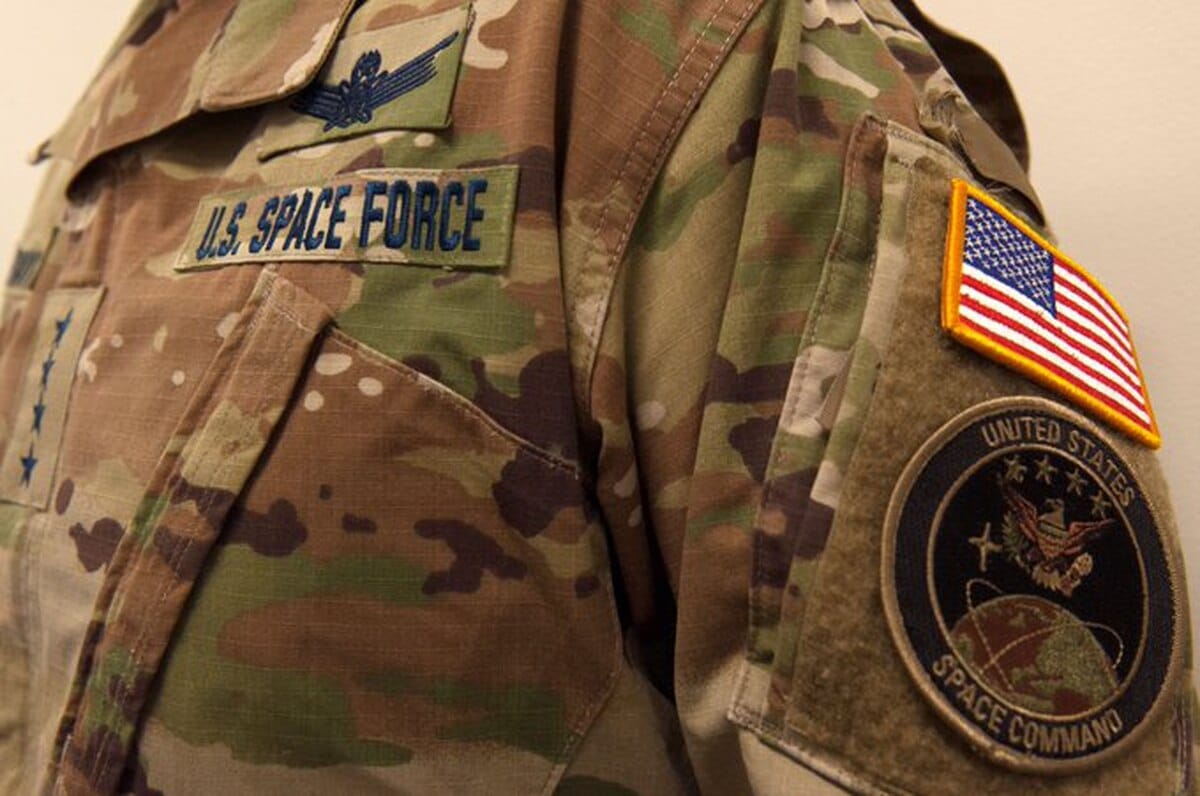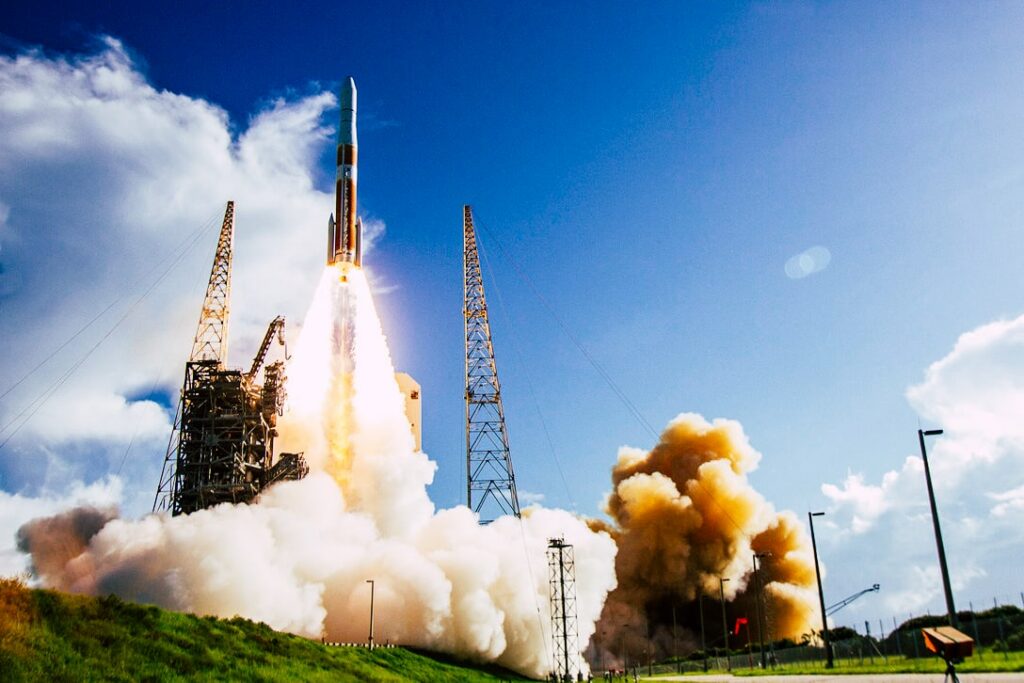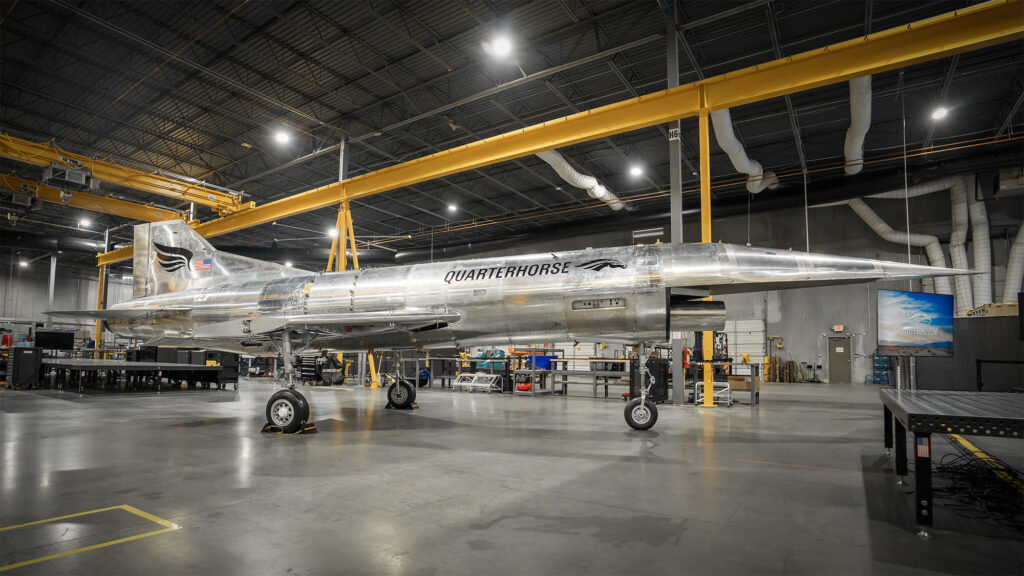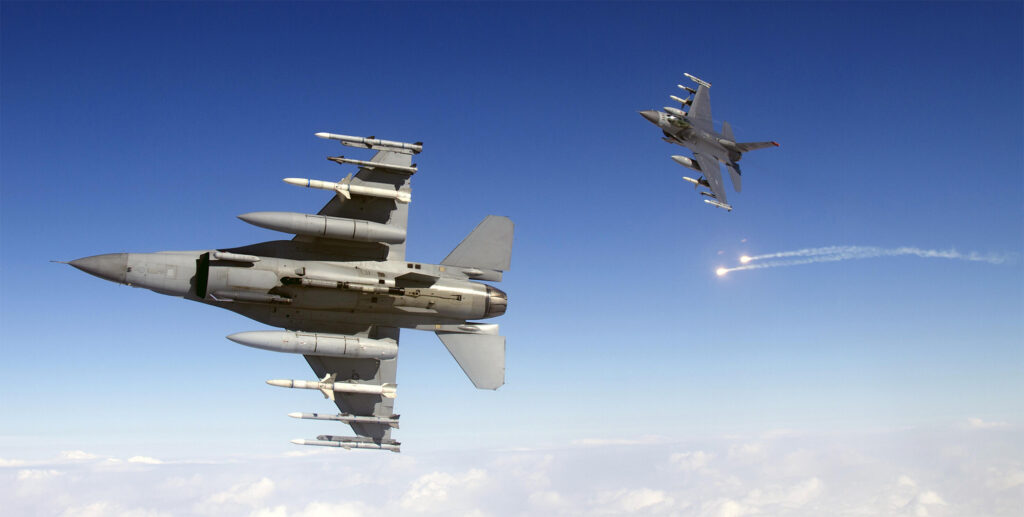What do you think members of the newly minted Space Force should be called? The Pentagon is posing that question to members of its newest branch as it continues to mature into an operational arm of the Defense Department. Some of the early recommendations have a decidedly video game-like flair: Guardians, Sentinels, and Vanguards.
The Space Force was born, so to speak, last December when President Trump signed the 2020 National Defense Authorization Act into law. Since then, the Space Force has garnered headlines for its use of Air Force uniforms and, of course, the social media frenzy that followed the Space Force’s logo bearing a striking resemblance to that of the fictional Starfleet Command.

While this sort of thing may not seem like an essential task, the name members of the Space Force get assigned can have far reaching implications for recruitment and morale. As such, it seems that the Space Force is approaching the topic like it’s a marketing issue.
“[There are] some pretty strong opinions,” Vice Commander of the U.S. Space Force, Lt. Gen. David Thompson, said. “But what we’d like to do is ensure we’ve thought as broadly as we can and have gotten the opinions of the people who matter, and those are people like … the young folks … and consider it as best we can before we land on a name.”
The Space Force has begun prompting new members of the fledgling branch, most of whom hail from the Air Force’s former Space Command, to give their suggestions via e-mail. That e-mail has since been re-published on the popular Facebook page “Air Force amn/nco/snco” — and while that page is not formally tied to the military branch, Space Force officials have verified the authenticity of the content.
These are the questions being posed to Space Force members in the e-mail:
- What should the enlisted E1-E9 ranks in the Space Force be called? Must be gender neutral.
- What should the collective group of members serving in the Space Force be called? Some names floating around already are Guardians, Sentinels, and Vanguards. Feel free to create a brand new word for those who are linguistically inclined.
- What should the enlisted rank insignia look like? Include the insignia for the Chief Master Sergeant of the Space Force, First Sergeants, and Command Chiefs. And where should the rank be placed on each uniform?
- What should our uniforms look like?
- What personnel policies would you change, create or keep?
- What things would you consider essential to create a Space Force culture?
- Where and what events should we be recruiting from to find STEM minded Space Force members? What entrance criteria, exams or considerations would you incorporate, change or keep?
- What should our Space Force creed be?
- What should our Space Force song lyrics and music be?
- What other thoughts/ideas do you have?
As you can see, these questions extend far further than naming, and speaks to branch’s overarching goals of not only establishing a new military branch in terms of operations and logistics, but also in terms of “esprit de corps.” In other words, the Space Force doesn’t just want to be where its service members work, it wants to be a part of how its members personally identify, just like Marines, Soldiers, Airman, and Sailors.

“We are currently in the research phase to explore options for the many characteristics of culture that will define the U.S. Space Force,” Military.com reported Maj. Will Russell, a Space Force spokesman, as saying.
“We are following a deliberate process to ensure the name of our Space Force professionals accurately represents the excellence and heritage of the men and women of the U.S. Space Force. We will send out more details to the military space community through official channels to solicit feedback,” Russell added.
The Space Force isn’t only relying on volunteer submissions, however. Officials have also engaged with members of the Air Force’s Language Department, as well as the Defense Department’s Defense Language Institute.
Currently, the Space Force is largely comprised of Air Force personnel that were already working in space-related capacities. In the months to come, military occupational specialties are among the pressing issues Space Force officials will need to parse out–determining which occupations should fall under the newly formed branch and which, if any, should be retained by the Air Force. Once those determinations have been made, members of the Space Force will be given the option to remain a member of the Air Force or transition to the new branch. Service members that wish to stay in the Air Force but who are assigned occupational specialties that fall under the Space Force will be given the opportunity to train in a new MOS.
Feature photo courtesy of the United Launch Alliance



